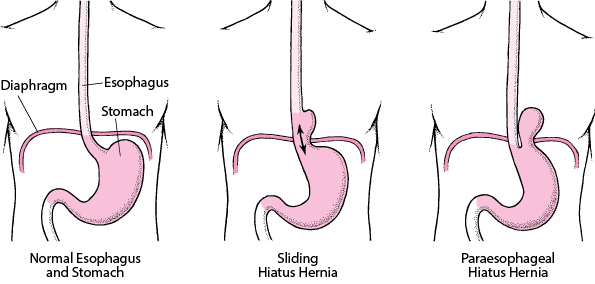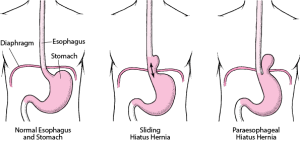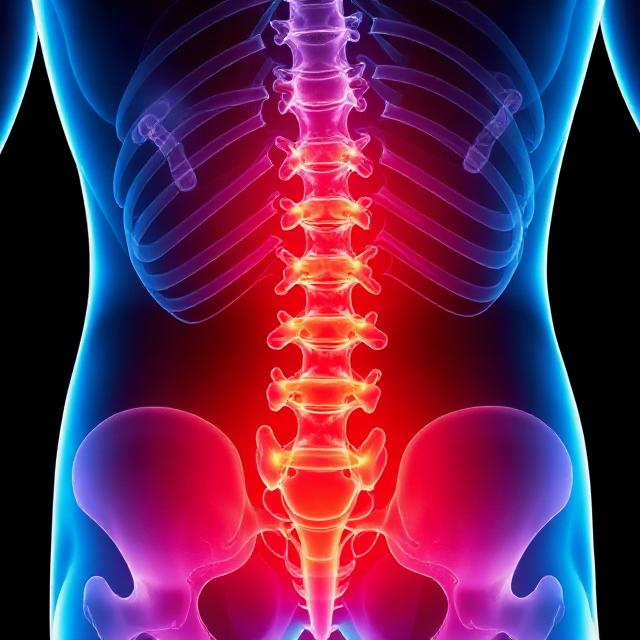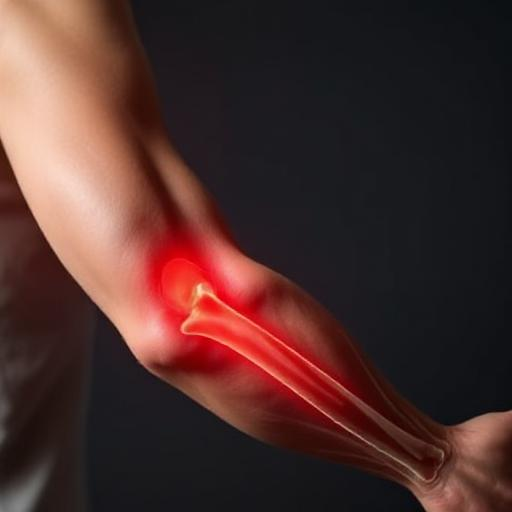The Importance of Getting Your Hiatal Hernia Repaired


A hiatal hernia is a common medical condition that occurs when a portion of the stomach pushes through the diaphragm and into the chest cavity. While many individuals with hiatal hernias may not experience symptoms, it is crucial to understand the potential complications and the importance of getting your hiatal hernia repaired, especially in the context of hiatal hernia in Malaysia.


What Is a Hiatal Hernia?
A hiatal hernia occurs when the upper part of the stomach bulges through the hiatus, an opening in the diaphragm that separates the chest cavity from the abdominal cavity. There are two main types of hiatal hernias:


Sliding Hiatal Hernia:
In a sliding hiatal hernia, the gastroesophageal junction and a portion of the stomach slide up into the chest when a person is in an upright position and return to the abdomen when lying down. This is the most common type of hiatal hernia.
Paraesophageal Hiatal Hernia:
A paraesophageal hiatal hernia is less common but more concerning. In this type, a portion of the stomach pushes through the diaphragm and remains in the chest cavity, alongside the oesophagus. This type of hernia can lead to more severe complications.
Causes of Hiatal Hernia:
The exact cause of hiatal hernias is not always clear, but several factors are associated with their development:
- Age: Hiatal hernias are more common in older adults, as the diaphragm may weaken over time.
- Obesity: Excess weight and pressure on the abdominal area can increase the risk of developing a hiatal hernia.
- Lifestyle Factors: Factors like smoking and heavy lifting may contribute to the development of hiatal hernias.
- Congenital Factors: Some individuals may be born with a larger hiatus, making them more prone to developing a hiatal hernia.
- Sustained and significant pressure on the adjacent muscles, which can occur during activities like coughing, vomiting, straining during bowel movements, exercising, or lifting heavy objects.
The Importance of Getting Your Hiatal Hernia Repaired:
Relief from Symptoms:
While many individuals with hiatal hernias may not experience symptoms, others may suffer from symptoms like heartburn, acid reflux, chest pain, and difficulty swallowing. Repairing the hernia can provide relief from these uncomfortable and sometimes painful symptoms.
Prevention of Complications:
If left untreated, hiatal hernias can lead to complications such as gastroesophageal reflux disease (GERD), esophagitis (inflammation of the oesophagus), Barrett’s oesophagus (a precancerous condition), and even aspiration pneumonia. Repairing the hernia can help prevent these serious complications.
Improved Quality of Life:
Hiatal hernias can significantly impact an individual’s quality of life by limiting their ability to eat comfortably and enjoy daily activities. Repairing the hernia can improve overall well-being and restore normalcy to daily life.
Reduced Risk of Strangulation:
In cases of paraesophageal hiatal hernias, there is a risk of the stomach becoming strangulated, which this strangulated tissue releases toxins and infections into the bloodstream, it can potentially lead to sepsis or even death, making it a critical medical emergency. Repairing the hernia eliminates this risk. (Strangulated hernia: it occurs when the blood supply to the herniated tissue has been cut off.)
Minimally Invasive Options:
Many hiatal hernia repairs can be performed using minimally invasive techniques, such as laparoscopic surgery. These approaches offer quicker recovery times and reduce postoperative discomfort compared to traditional open surgery.
Hiatal Hernia in Malaysia:
In Malaysia, individuals with hiatal hernias have access to advanced medical care and surgical expertise. Medical professionals in Malaysia are well-equipped to diagnose and treat hiatal hernias using the latest techniques and technologies. Seeking timely medical attention and discussing treatment options with healthcare providers in Malaysia is essential for those diagnosed with hiatal hernias.
Conclusion:
Getting your hiatal hernia repaired is crucial for relieving symptoms, preventing complications, and improving your quality of life. Whether you have a sliding or paraesophageal hiatal hernia, consulting with a healthcare provider in Malaysia is a significant step toward effective diagnosis and appropriate treatment. Timely intervention can help you regain comfort, normalcy, and peace of mind, ensuring that a hiatal hernia does not negatively impact your overall health and well-being.
Reference
- Sfara, Alice, and Dan L Dumitrascu. “The management of hiatal hernia: an update on diagnosis and treatment.” Medicine and pharmacy reports vol. 92,4 (2019): 321-325. doi:10.15386/mpr-1323
- Lynch, K. L. (2023, September 29). Hiatus hernia – gastrointestinal disorders. MSD Manual Professional Edition. https://www.msdmanuals.com/professional/gastrointestinal-disorders/esophageal-and-swallowing-disorders/hiatus-hernia
- Watson TJ, Ziegler KM. The Pathogenesis of Hiatal Hernia. Foregut. 2022;2(1):36-43. doi:10.1177/26345161221083020



